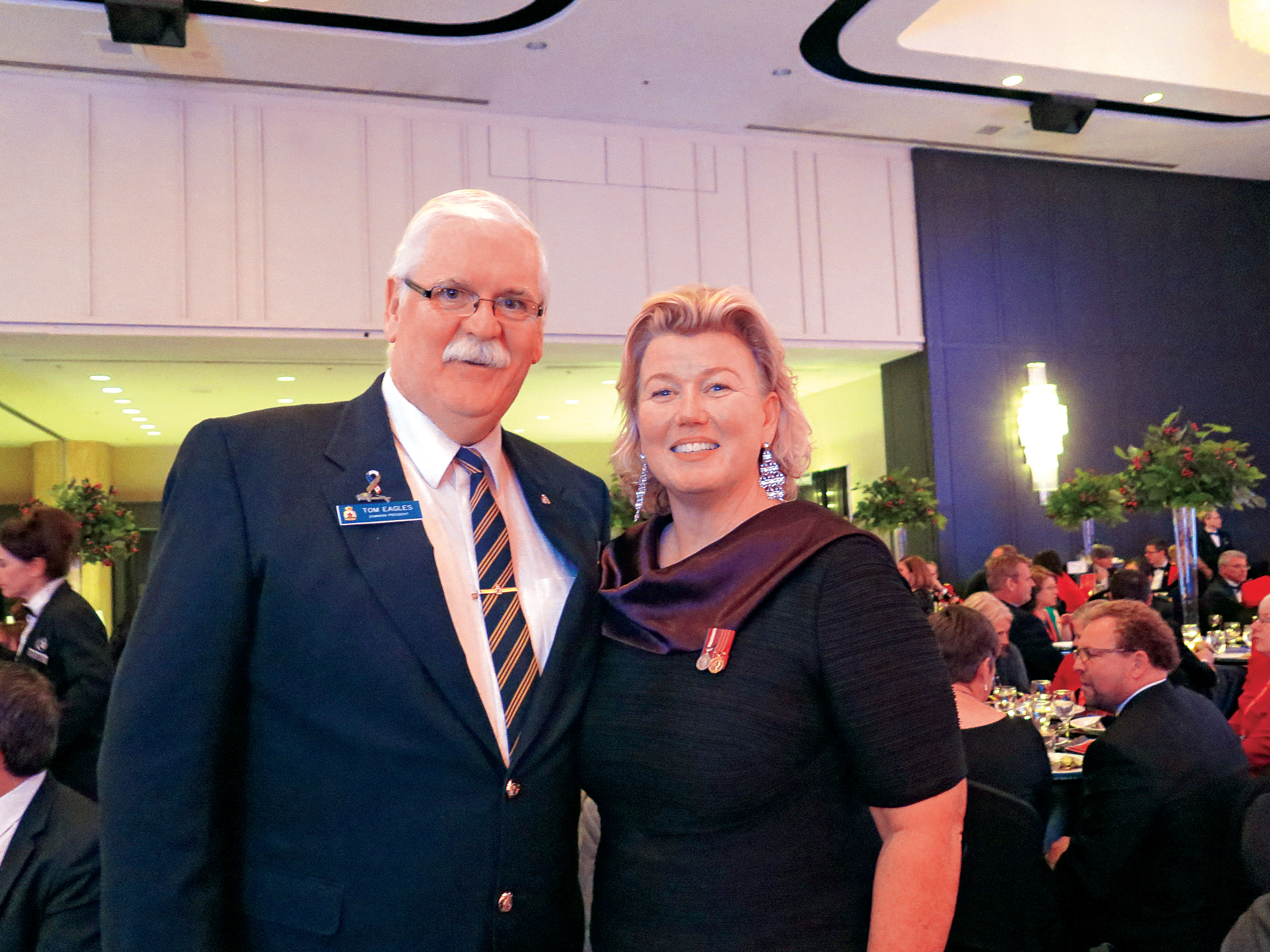
Helicopter crews—especially those flying at night—know their jobs can be a pain in the neck. Literally.
A combination of vibration, flight length and helmet weight all take a toll on the muscles and bones of crew members.
The unbalanced 2.5-kilogram weight of a helmet and night-vision goggles particularly stress the neck. A new helmet design is the ultimate solution, but researchers are working on interim measures to prevent pain and injury.
More than 450 participants at the 2015 Military and Veteran Health Research Forum in Quebec City on Nov. 23-25 heard about the work of a team of researchers at the University of Waterloo. Headed by Steven Fischer of the School of Kinesiology and Health Studies, the team has designed a counterweight-and-tether system that balances the helmet’s weight, relieving some pressure. Exercises to strengthen neck muscles have also had some success, reported Queen’s University researcher Lucie Pelland of the School of Rehabilitation Therapy.
To design a good solution, “We had to understand the problem from the perspective of the end user,” said Fischer, winner of the 2014 Major Sir Frederick Banting Award. Aircrew tested out a number of versions, and the final design is now being field tested and patented.
More than 150 researchers from universities, Veterans Affairs Canada, the Canadian Armed Forces, Defence Research and Development Canada (DRDC) and private industry gave oral presentations and manned kiosks that touched on advances in technology, operational and occupational health and rehabilitation, ethics, mental health, and transition to civilian life.
Such research is vital to improving the health of serving members and veterans, said speakers representing the men and women in uniform and veterans who suffered illness and injury due to their service.
“Though the rate of physical injury has slowed considerably (since the end of Canada’s combat mission to Afghanistan), the need to continue medical research has not,” said Vice-Chief of Defence Staff Lieutenant-General Guy Thibeault. He praised recent advances, particularly in mental health research, but said, “We are still losing high quality men and women to injuries that are often difficult to see, difficult to treat.” A recent CAF report on suicide noted higher suicide rates among those who deploy internationally, and that half of those who die by suicide are not in treatment. “We know these aren’t statistics (or) data points on a spreadsheet. They’re sons and daughters, wives and husbands, parents and comrades and friends,” he said.
VAC Deputy Minister Walt Natynczyk, a former Chief of the Defence Staff, applauded research that has provided evidence for improvements in treatment and support, and asked researchers to redouble their efforts. “Your collective wisdom is what we call upon now,” he said, “because your efforts are saving lives.”
In addition to the human costs, said Brigadier-General Colin MacKay, CAF Surgeon General, hearing loss and musculoskeletal injuries cost millions of dollars a year. Military members work in dangerous environments and use complex tools. “We carry on no matter what the challenge,” he said. “We are constantly looking for better ways to reduce [these injuries]. We can’t predict the nature of our next conflict,” adding that research allows the armed forces to respond to whatever challenges arise.
Many advocates have invested in research funding and awards to encourage researchers to specialize in military and veterans’ health research topics. Among those announced at the forum:
• Former reservist Ashleigh Forsyth of Queen’s University was presented The Royal Canadian Legion’s $30,000 Master’s Scholarship by Dominion President Tom Eagles.
• University of Calgary researcher Helena Hawryluk received the Wounded Warriors Doctoral Scholarship.
• Richard Birtwhistle of Queen’s University received the three-year $105,000 Calian Research Award.
Advertisement













